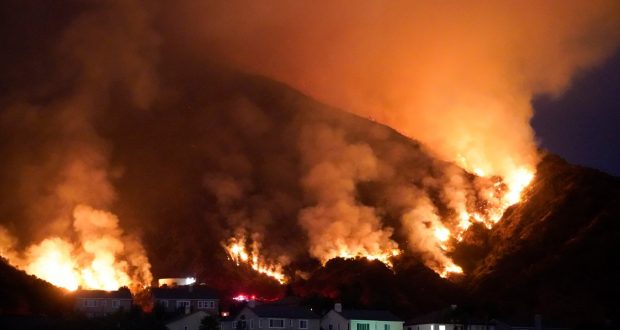SACRAMENTO – The California Department of Public Health (CDPH) is urging residents in fire-stricken regions and surrounding areas to be aware of poor air quality and the effect it can have on their health. Air quality in many parts of the state may be unhealthy due to the increasing number of wildfires.
“Smoke doesn’t know borders or boundaries, and regions that are miles away from fires can have poor air quality,” said Acting CDPH Director Sandra Shewry. “We urge Californians to stay indoors as much as possible when air quality is poor. This is especially critical for children, women who are pregnant, older adults, and people with existing lung and heart conditions who may be particularly sensitive to changes in air quality.”
While cloth face coverings offer protection against COVID-19 virus spread, they do not provide protection against smoke particles. People who must be outdoors for long periods, in areas with heavy smoke, or where ash is disturbed, may want to wear an N95 respirator mask. Those with existing respiratory, lung or heart conditions should limit their exposure by staying indoors. Since wearing a respirator can make it harder to breathe, those with lung or heart conditions should check with their doctor before using one.
The best way to protect against the potentially harmful effects of wildfire smoke is to reduce wildfire smoke exposure, for example, by seeking cleaner air spaces and shelters. Californians can find current air quality conditions by visiting www.airnow.gov and entering their zip code.
Residents should monitor children and check in on others who may be more susceptible to the health impacts of wildfire smoke. Seek immediate medical care if someone is experiencing chest pain, chest tightness, or shortness of breath.
The following tips can help Californians reduce smoke inhalation during wildfires:
Stay Indoors: Stay inside with the doors and windows closed to reduce exposure to smoky air. If you have power, run an air conditioner if you have one. If the air conditioner has a recirculate option, use it. Smoke levels can change throughout the day, so try to stay indoors during smokier times.
Remember that gathering with others indoors increases the risk of COVID-19 transmission. To reduce the risk of transmission when indoors, physically distance yourself 6 feet from individuals outside your immediate family, wash your hands frequently and wear a cloth face covering.
Reduce Activity: Reduce physical activity to reduce inhalation of smoky air. During exercise, people can increase their air intake as much as 20 times from their resting level.
Be Prepared: Monitor wildfire activity in your area and be prepared to evacuate if advised. Make sure you have all prescribed medications, including inhalers.
For information on air quality in your area and how to protect your health during wildfires, please visit the CDPH website.
 Westside Story Newspaper – Online The News of The Empire – Sharing the Quest for Excellence
Westside Story Newspaper – Online The News of The Empire – Sharing the Quest for Excellence




